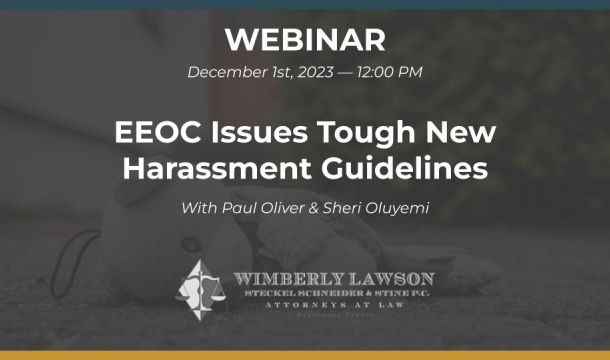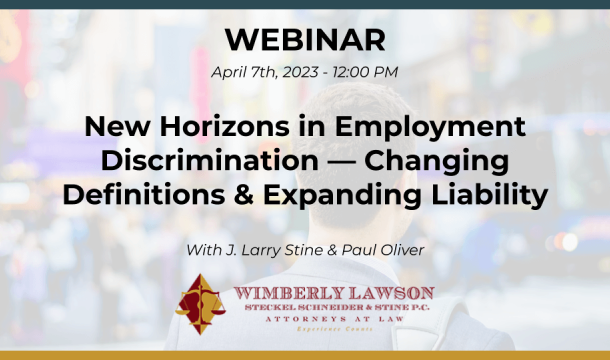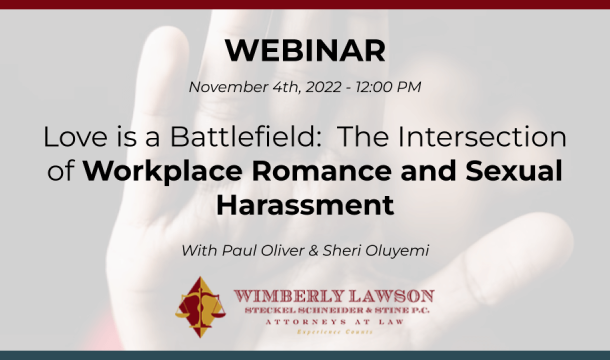A Teachable Moment: What Employers Can Learn From Paula Deen’s Experience
The national attention devoted to Paula Deen provides an excellent opportunity for employers to review their policies and procedures concerning harassment and inappropriate conduct in the workplace with all employees, but most particularly, supervisors and members of management. Supervisors and managers are the first line of an employer’s defense in the prevention of claims for harassment or discrimination.
At the same time, under certain circumstances, the actions of supervisors and managers can result in strict liability for the employer if the supervisor or manager engaged in conduct that is considered to be harassment and the affected employee suffers a tangible change in his/her employment, such as termination or demotion. Thus, it is critical that all supervisors and managers understand their responsibilities with regard to addressing and preventing claims of workplace harassment.
What has been lost in the ongoing debate over Ms. Deen’s use of the “n” word is a description of other troubling conduct on her part. For example, it was revealed in her deposition that she was aware that her brother, a part owner in the business, was viewing pornography at work. In addition, Ms. Deen’s testimony displayed a rather cavalier attitude about the use of jokes about race and religion. These are the kinds of behaviors that should not be tolerated in a workplace.
Our recommendation: We recommend that every employer engage in regular training sessions with its supervisors and managers to reinforce the employer’s policy against harassment in the workplace. There are three main reasons for this recommendation:
First, supervisors and managers need to be aware of the types of conduct and comments that are deemed unacceptable by the employer.
Second, in the event that a supervisor or manager is accused of committing harassment, and the complaining employee suffers no tangible detriment to his/her employment, the employer can avoid liability by showing it has effective policies and procedures to prevent harassment and effective policies and procedures to address and remedy harassment when it occurs. One important element of proof in this defense is to show that the employer took the initiative to conduct regular training of its supervisors and managers in harassment avoidance.
Third, an employer is also liable for the acts of non-supervisory employees when it knew or should have known of the conduct but failed to take prompt remedial action pursuant to a policy prohibiting sexual harassment. Supervisors and managers are responsible for taking action when they become aware of potentially harassing conduct in the workplace and should be aware of their duties and responsibilities to report such conduct to the appropriate person (usually a human resources representative) so that prompt, effective action can be taken by the company.
The time and money spent in training supervisors and managers in learning to recognize and avoid harassment in the workplace is far less than the cost of litigating a harassment lawsuit. Now is a good time to make sure that such training is up to date.
For questions or additional information call Kathleen Jennings, Rhonda Klein, Paul Oliver, or any other attorney at (404) 365-0900 or at kjj@wimlaw.com, rlk@wimlaw.com or po@wimlaw.com.
Related Content
Get Email Updates
Recent Content

NLRB to Seek Rescission of past Discipline Imposed under Overbroad Employer Work Rules

Do Drive Cam Cameras inside Trucks Violate Employee Rights?

Amazon Considers Risk When Investigating Employee Misconduct

Latest NLRB Attack Goes beyond Non-Compete Agreements to Reach Outside Employment

NLRB Board Addresses BLM Insignia at Work




